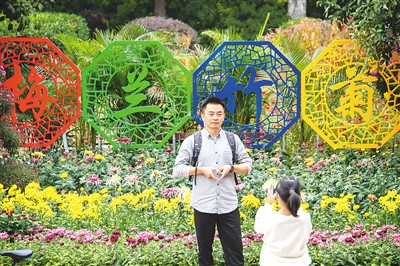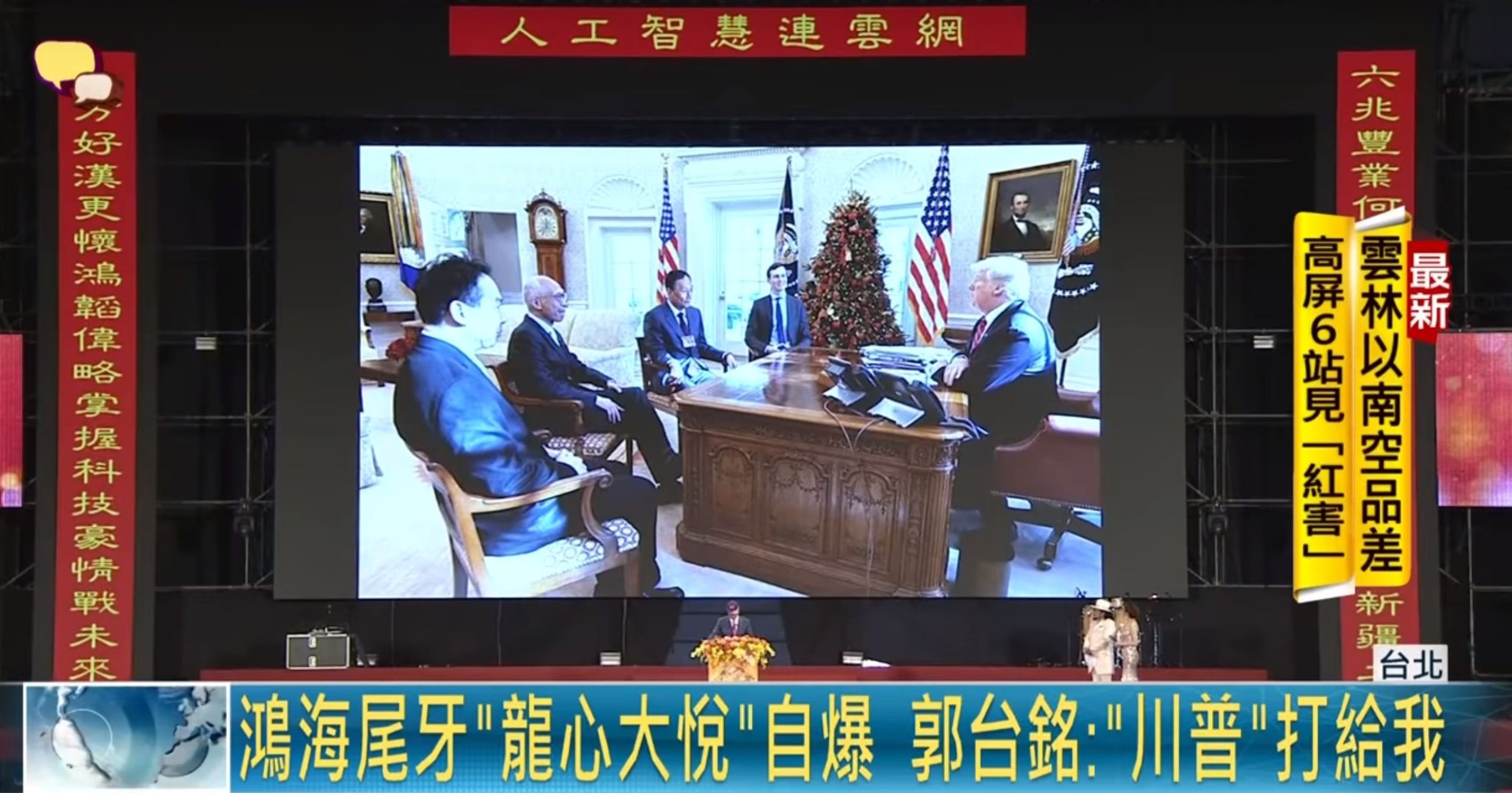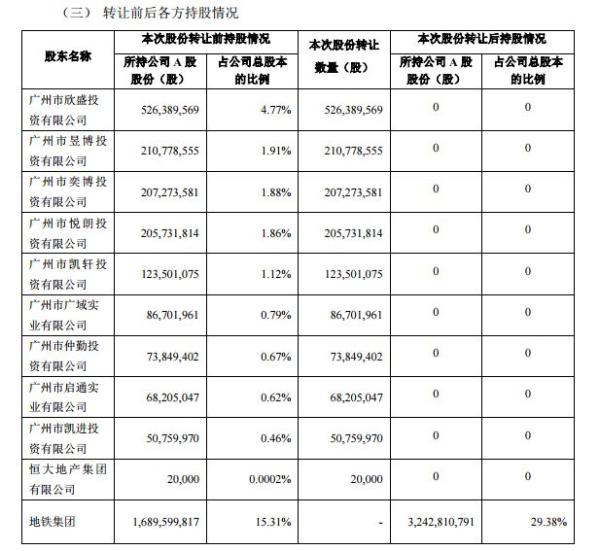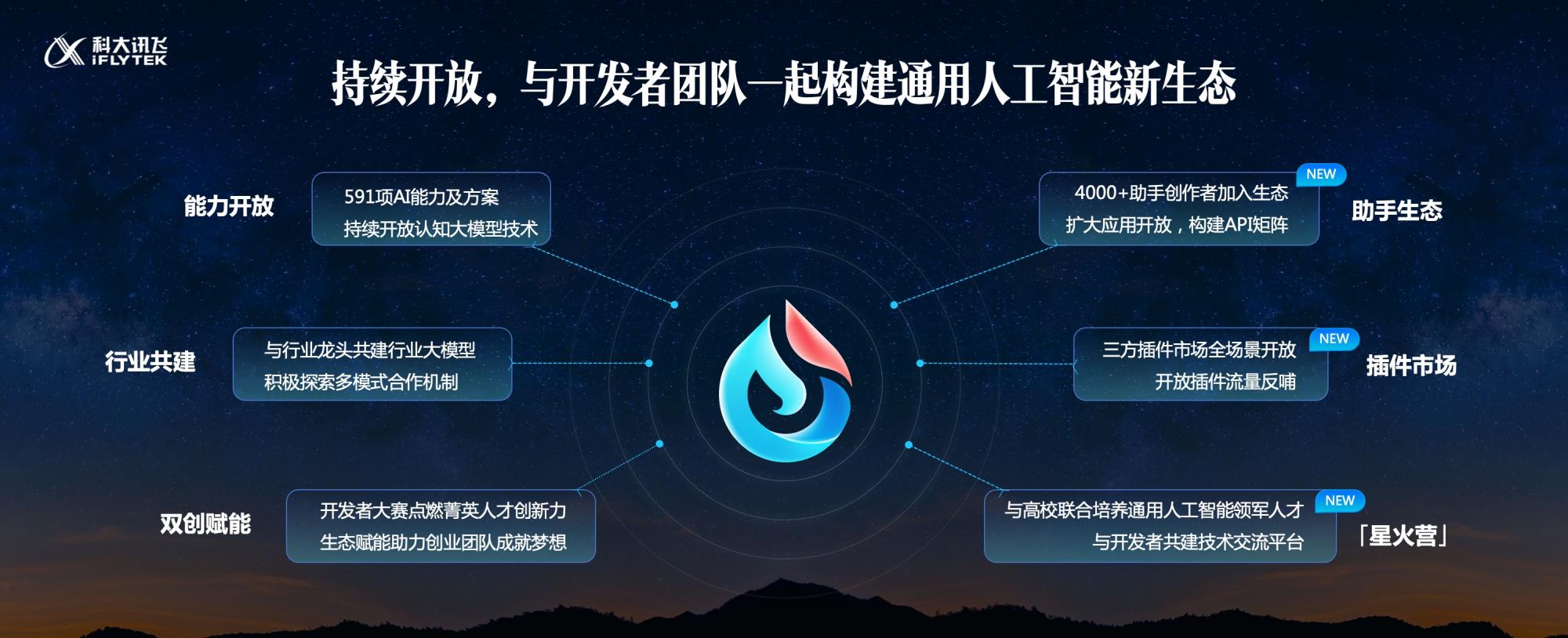Notice of the State Council Municipality on Printing and Distributing the Action Plan for Water Pollution Prevention and Control
Guo Fa [2015] No.17
People’s governments of all provinces, autonomous regions and municipalities directly under the Central Government, ministries and commissions and institutions directly under the State Council:
The Action Plan for Water Pollution Prevention and Control is hereby printed and distributed to you, please implement it carefully.
?the State Council
April 2, 2015
(This piece is publicly released)
?
?
water pollution control action plan
Water environmental protection is related to the vital interests of the people, to building a well-off society in an all-round way and to realizing the Chinese dream of great rejuvenation of the Chinese nation. At present, in some areas of China, problems such as poor water environment quality, serious water ecological damage and many environmental hidden dangers are very prominent, which affect and damage people’s health and are not conducive to sustainable economic and social development. This action plan is formulated in order to effectively strengthen the prevention and control of water pollution and ensure national water security.
General requirementsFully implement the spirit of the 18th National Congress of the Communist Party of China and the 2nd, 3rd and 4th Plenary Sessions of the 18th Central Committee, vigorously promote the construction of ecological civilization, focus on improving the quality of water environment, implement the policy of "safety, cleanliness and health" according to the principle of "giving priority to water conservation, spatial balance, systematic management and exerting efforts with both hands", strengthen source control, make overall plans for land and water, and give consideration to rivers, lakes and seas. Adhere to government market coordination and pay attention to reform and innovation; Adhere to the comprehensive promotion according to law and implement the strictest environmental protection system; Adhere to the implementation of the responsibilities of all parties and strictly assess accountability; Adhere to the participation of the whole people, and it is everyone’s responsibility to promote water conservation and clean water, and form a new mechanism for water pollution prevention and control that is "led by the government, governed by enterprises, driven by the market, and participated by the public", so as to achieve win-win environmental, economic and social benefits and strive to build a beautiful China where the blue sky is always there, the green mountains are always there, and the green water is always there.
job objectiveBy 2020, the quality of water environment in China will be improved in stages, the water bodies with serious pollution will be greatly reduced, the level of drinking water safety will be continuously improved, the over-exploitation of groundwater will be strictly controlled, the trend of groundwater pollution will be initially curbed, the environmental quality of coastal waters will be steadily improved, and the water ecological environment in Beijing-Tianjin-Hebei, Yangtze River Delta and Pearl River Delta will be improved. By 2030, we will strive to improve the overall quality of the water environment in the country and restore the functions of the water ecosystem initially. By the middle of this century, the quality of ecological environment has been improved in an all-round way, and the ecosystem has achieved a virtuous circle.
leading indicatorBy 2020, the proportion of water quality in seven key river basins, such as the Yangtze River, the Yellow River, the Pearl River, the Songhua River, the Huaihe River, the Haihe River and the Liaohe River, will be above 70%, the black and odorous water bodies in the built-up areas of cities at or above the prefecture level will be controlled within 10%, the proportion of centralized drinking water sources at or above the prefecture level will be above 93%, and the proportion of groundwater quality in the whole country will be controlled around 15%. The cross-section ratio of water bodies that have lost their use function (inferior to Class V) in Beijing-Tianjin-Hebei region has dropped by about 15 percentage points, and the Yangtze River Delta and Pearl River Delta regions are striving to eliminate water bodies that have lost their use function.
By 2030, the proportion of excellent water quality in seven key river basins in China will reach more than 75% as a whole, the black and odorous water bodies in urban built-up areas will be eliminated as a whole, and the proportion of urban centralized drinking water sources reaching or better than Grade III will be about 95% as a whole.
First, comprehensive control of pollutant emissions
(1) Pay close attention to the prevention and control of industrial pollution.Banning "ten small" enterprises. Comprehensively investigate small industrial enterprises with low equipment level and poor environmental protection facilities. Before the end of 2016, according to the requirements of laws and regulations on water pollution prevention and control, all small-scale production projects that seriously pollute the water environment, such as papermaking, tanning, printing and dyeing, dyes, coking, sulfur smelting, arsenic smelting, oil refining, electroplating and pesticides, will be banned.. (The Ministry of Environmental Protection takes the lead, with the participation of the Ministry of Industry and Information Technology, the Ministry of Land and Resources and the Energy Bureau, and the local people’s governments at all levels are responsible for the implementation. The following must be implemented by local people’s governments at all levels, and are no longer listed)
Special rectification of ten key industries. Formulate special treatment plans for papermaking, coking, nitrogen fertilizer, non-ferrous metals, printing and dyeing, agricultural and sideline food processing, raw material medicine manufacturing, tanning, pesticides, electroplating and other industries, and implement clean transformation. New construction, renovation and expansion of the above-mentioned industry construction projects will implement equal or reduced replacement of major pollutants. Before the end of 2017, the paper industry will strive to complete the transformation of chlorine-free bleaching of pulp or adopt other low-pollution pulping technologies, the coke oven of iron and steel enterprises will complete the technical transformation of dry quenching, the urea production of nitrogen fertilizer industry will complete the technical transformation of hydrolysis and analysis of process condensate, the printing and dyeing industry will implement the technical transformation of low drainage dyeing and finishing, the pharmaceutical (antibiotics and vitamins) industry will implement the technical transformation of green enzyme production, and the leather industry will implement the technical transformation of chromium reduction and closed recycling..(Led by the Ministry of Environmental Protection, with the participation of the Ministry of Industry and Information Technology)
Centralized control of water pollution in industrial clusters. Strengthen pollution control in industrial clusters such as economic and technological development zones, high-tech industrial development zones and export processing zones. Industrial wastewater in the agglomeration area must be pretreated to meet the requirements of centralized treatment before entering the centralized sewage treatment facilities. Newly built and upgraded industrial clusters should plan and build pollution control facilities such as centralized treatment of sewage and garbage simultaneously. Before the end of 2017, centralized sewage treatment facilities should be built in industrial clusters according to regulations, and automatic online monitoring devices should be installed, and the Beijing-Tianjin-Hebei, Yangtze River Delta and Pearl River Delta regions should be completed one year ahead of schedule; If it is not completed within the time limit, the approval and approval of the construction projects that increase the discharge of water pollutants will be suspended, and its park qualification will be revoked in accordance with relevant regulations.(Led by the Ministry of Environmental Protection, with the participation of the Ministry of Science and Technology, the Ministry of Industry and Information Technology and the Ministry of Commerce)
(2) Strengthen the control of urban domestic pollution.Accelerate the construction and transformation of urban sewage treatment facilities. Existing urban sewage treatment facilities should be transformed according to local conditions, and meet the corresponding discharge standards or recycling requirements before the end of 2020. Urban sewage treatment facilities in sensitive areas (key lakes, key reservoirs, and coastal water catchment areas) should fully meet the first-class A discharge standard before the end of 2017. In cities where the water quality in the built-up area can’t meet the Class IV standard of surface water, the newly-built urban sewage treatment facilities should implement the Class A discharge standard. According to the requirements of the national new urbanization plan, by 2020, all county towns and key towns in China will have the capacity of sewage collection and treatment, and the sewage treatment rates of county towns and cities will reach about 85% and 95% respectively. The Beijing-Tianjin-Hebei, Yangtze River Delta and Pearl River Delta regions were completed one year ahead of schedule.(led by the Ministry of Housing and Urban-Rural Development, with the participation of the Development and Reform Commission and the Ministry of Environmental Protection)
Comprehensively strengthen the construction of supporting pipe network. Strengthen sewage interception and collection in urban villages, old urban areas and urban-rural fringe areas. The existing combined drainage system should speed up the transformation of rain and sewage separation. If it is difficult to transform, measures such as interception, storage and treatment should be taken. The supporting pipe network of new sewage treatment facilities should be designed, constructed and put into operation simultaneously. Except in arid areas, rainwater and sewage are diverted in the construction of new urban areas, and areas with conditions should promote the collection, treatment and resource utilization of initial rainwater. By 2017, the sewage in the built-up areas of municipalities directly under the central government, provincial capital cities and cities with separate plans will be basically collected and treated, and the built-up areas of other prefecture-level cities will be basically realized by the end of 2020.(led by the Ministry of Housing and Urban-Rural Development, with the participation of the Development and Reform Commission and the Ministry of Environmental Protection)
Promote sludge treatment and disposal. Sludge produced by sewage treatment facilities should be treated and disposed of in a stable, harmless and resource-based manner, and it is forbidden to treat and dispose the sludge that is not up to standard and enter the cultivated land. Illegal sludge dumps will be banned. The existing sludge treatment and disposal facilities should basically complete the standard transformation before the end of 2017, and the harmless treatment and disposal rate of sludge in prefecture-level and above cities should reach more than 90% by the end of 2020..(led by the Ministry of Housing and Urban-Rural Development, with the participation of the Development and Reform Commission, the Ministry of Industry and Information Technology, the Ministry of Environmental Protection and the Ministry of Agriculture)
(3) Promoting the prevention and control of pollution in agriculture and rural areas.Prevention and control of livestock and poultry pollution. Scientifically demarcate the livestock and poultry breeding forbidden areas. Before the end of 2017, the livestock and poultry farms (communities) and specialized breeding households in the forbidden areas will be closed or relocated according to law, and the Beijing-Tianjin-Hebei, Yangtze River Delta and Pearl River Delta regions will be completed one year ahead of schedule. The existing large-scale livestock and poultry farms (communities) should build facilities for the storage, treatment and utilization of fecal sewage according to the needs of pollution prevention and control. Free-range intensive areas should implement household collection and centralized treatment and utilization of livestock manure sewage. Since 2016, new construction, reconstruction and expansion of large-scale livestock and poultry farms (communities) should implement rain and sewage diversion and waste water resource utilization..(The Ministry of Agriculture takes the lead and the Ministry of Environmental Protection participates)
Control agricultural non-point source pollution. Formulate and implement the national comprehensive prevention and control plan for agricultural non-point source pollution. Promote the pilot experience of subsidies for the use of low-toxic and low-residue pesticides, and carry out green prevention and control of crop pests and diseases and unified prevention and control. Implement soil testing and formula fertilization, and popularize precision fertilization techniques and machines. Improve the standards and norms of high-standard farmland construction, land development and consolidation, clarify environmental protection requirements, and build high-standard farmland to meet relevant environmental protection requirements. Sensitive areas and large and medium-sized irrigation areas should use existing ditches, ponds, pits, etc., configure aquatic plant communities, grids and permeable dams, and build ecological ditches, sewage purification ponds, surface runoff storage pools and other facilities to purify farmland drainage and surface runoff. By 2020, the popularization coverage rate of soil testing and formula fertilization technology will reach more than 90%, the utilization rate of chemical fertilizers will increase to more than 40%, and the coverage rate of crop pests and diseases will reach more than 40%; The Beijing-Tianjin-Hebei, Yangtze River Delta and Pearl River Delta regions were completed one year ahead of schedule.(Led by the Ministry of Agriculture, with the participation of the Development and Reform Commission, the Ministry of Industry and Information Technology, the Ministry of Land and Resources, the Ministry of Environmental Protection, the Ministry of Water Resources and the General Administration of Quality Supervision, Inspection and Quarantine)
Adjust the structure and layout of planting industry. Retreat land and reduce water in water-deficient areas on a trial basis. In areas where groundwater is easy to be polluted, priority should be given to planting crops with low fertilizer and drug demand and outstanding environmental benefits. Five provinces (regions) such as Gansu, Xinjiang (including Xinjiang Production and Construction Corps), Hebei, Shandong and Henan, where the problems of over-exploitation of surface water and over-exploitation of groundwater are serious, should appropriately reduce the planting area of crops with large water consumption and replant drought-tolerant crops and economic forests; By the end of 2018, the irrigation area of 33 million mu will be comprehensively managed, and the amount of water will be reduced by more than 3.7 billion cubic meters.(Led by the Ministry of Agriculture and the Ministry of Water Resources, with the participation of the Development and Reform Commission and the Ministry of Land and Resources)
Accelerate the comprehensive improvement of rural environment. Taking the county-level administrative region as a unit, unified planning, unified construction and unified management of rural sewage treatment will be implemented, and areas with conditions will actively promote the extension of urban sewage treatment facilities and services to rural areas. Deepen the policy of "promoting governance with awards", implement rural clean-up projects, carry out river dredging and dredging, and promote the contiguous improvement of rural environment. By 2020, there will be 130,000 newly established villages that have completed comprehensive environmental improvement..(Led by the Ministry of Environmental Protection, with the participation of the Ministry of Housing and Urban-Rural Development, the Ministry of Water Resources and the Ministry of Agriculture)
(4) Strengthen the pollution control of ships and ports.Actively control ship pollution. Compulsory scrapping of ships that have exceeded their service life according to law. Revise the relevant environmental protection standards of ships and their facilities and equipment by classification. Coastal ships put into use in 2018 and inland river ships put into use in 2021 will implement new standards; Other ships will be rebuilt before the end of 2020, and if they still cannot meet the requirements after renovation, they will be eliminated within a time limit. Ships sailing on international routes in China’s waters should exchange ballast water or install ballast water inactivation treatment system. Standardize ship dismantling, and prohibit beach dismantling.(The Ministry of Transport takes the lead, with the participation of the Ministry of Industry and Information Technology, the Ministry of Environmental Protection, the Ministry of Agriculture and the General Administration of Quality Supervision, Inspection and Quarantine)
Enhance the pollution prevention and control capacity of ports and docks. Formulate and implement the national pollution prevention and control plan for ports, docks and loading and unloading stations. Accelerate the construction of garbage receiving, transshipment, treatment and disposal facilities, and improve the receiving and disposal capacity of oily sewage and chemical tank washing water and the emergency response capacity of pollution accidents. Ports, docks, loading and unloading stations and ship repair plants located in coastal and inland rivers will meet the construction requirements by the end of 2017 and 2020 respectively. Operators of ports, wharves and loading and unloading stations shall formulate emergency plans to prevent and control water pollution caused by ships and related activities.(The Ministry of Transport takes the lead, with the participation of the Ministry of Industry and Information Technology, the Ministry of Housing and Urban-Rural Development and the Ministry of Agriculture)
Second, promote the transformation and upgrading of the economic structure
(5) adjusting the industrial structure.Eliminate backward production capacity according to law. Since 2015, all localities should formulate and implement annual plans for eliminating backward production capacity according to the guidance catalogue for eliminating backward production technology and equipment and products in some industrial sectors, the guidance catalogue for industrial structure adjustment and the pollutant discharge standards of related industries, and in combination with the requirements for water quality improvement and industrial development, and report them to the Ministry of Industry and Information Technology and the Ministry of Environmental Protection for the record. In areas that have not completed the elimination task, the approval and approval of new projects in related industries will be suspended.(Led by the Ministry of Industry and Information Technology, with the participation of the Development and Reform Commission and the Ministry of Environmental Protection)
Strict environmental access. According to the water quality objectives of the river basin and the planning requirements of the main functional areas, the regional environmental access conditions are defined, the functional zoning is refined, and the differentiated environmental access policies are implemented. The establishment of water resources, water environment carrying capacity monitoring and evaluation system, the implementation of carrying capacity monitoring and early warning, has exceeded the carrying capacity of the region to implement water pollutant reduction program, accelerate the adjustment of development planning and industrial structure. By 2020, the organization will complete the evaluation of the current situation of water resources and water environment carrying capacity in cities and counties.(Led by the Ministry of Environmental Protection, with the participation of the Ministry of Housing and Urban-Rural Development, the Ministry of Water Resources and the Oceanic Administration)
(6) Optimize the spatial layout.Reasonably determine the development layout, structure and scale. Fully consider the carrying capacity of water resources and water environment, and determine the city, land, people and production by water. In principle, major projects are laid out in optimized development zones and key development zones, and conform to urban and rural planning and overall land use planning. Encourage the development of water-saving and efficient modern agriculture, high-tech industries with low water consumption and eco-protection tourism, strictly control the development of high-water consumption and high-pollution industries in water-deficient areas, serious water pollution areas and sensitive areas, and implement the reduction and replacement of major pollutants in key industry construction projects. Along the main streams of the seven key river basins, it is necessary to strictly control the environmental risks of petroleum processing, chemical raw materials and chemical products manufacturing, pharmaceutical manufacturing, chemical fiber manufacturing, non-ferrous metal smelting, textile printing and dyeing, and rationally arrange production facilities and storage facilities for dangerous chemicals..(led by the Development and Reform Commission and the Ministry of Industry and Information Technology, with the participation of the Ministry of Land and Resources, the Ministry of Environmental Protection, the Ministry of Housing and Urban-Rural Development and the Ministry of Water Resources)
Promote the withdrawal of polluting enterprises. Enterprises with heavy pollution, such as steel, nonferrous metals, paper making, printing and dyeing, raw material medicine manufacturing, chemical industry, etc., in the urban built-up area should be relocated in an orderly manner or closed down according to law.(The Ministry of Industry and Information Technology takes the lead and the Ministry of Environmental Protection participates)
Actively protect ecological space. Strict management of urban planning blue line, a certain proportion of water area should be reserved within the urban planning area. New projects are not allowed to illegally occupy waters. Strict water shoreline use control, land development and utilization should be in accordance with the requirements of relevant laws, regulations and technical standards, leaving enough scope for the management and protection of rivers, lakes and coastal areas, and illegally occupying them should be withdrawn within a time limit.(The Ministry of Land and Resources and the Ministry of Housing and Urban-Rural Development take the lead, with the participation of the Ministry of Environmental Protection, the Ministry of Water Resources and the Oceanic Administration)
(7) Promoting circular development.Strengthen industrial water recycling. To promote the comprehensive utilization of mine water, priority should be given to the supplementary water in coal mining areas, production and ecological water in surrounding areas, and the recycling of coal washing wastewater should be strengthened. Encourage advanced treatment and reuse of wastewater from high-water consuming enterprises such as steel, textile printing and dyeing, paper making, petroleum and petrochemical, chemical industry and leather making.(Development and Reform Commission, Ministry of Industry and Information Technology take the lead, Ministry of Water Resources and Energy Bureau participate)
Promote the utilization of reclaimed water. Focus on cities in areas with serious water shortage and water pollution, improve the utilization facilities of reclaimed water, and give priority to the use of reclaimed water for industrial production, urban greening, road cleaning, vehicle washing, building construction and ecological landscape. Promote sewage treatment and utilization in expressway service areas. Projects such as steel, thermal power, chemical industry, pulping and papermaking, printing and dyeing that have the conditions to use reclaimed water but are not fully utilized shall not be approved for new water intake permits. Since 2018, newly-built public buildings with a single building area of more than 20,000 square meters, and newly-built affordable housing with a concentration of 20,000 square meters in Beijing, 50,000 square meters in Tianjin and 100,000 square meters in Hebei Province should be equipped with reclaimed water facilities. Actively promote other new houses to install water facilities in buildings. By 2020, the utilization rate of reclaimed water in water-deficient cities will reach more than 20%, and the Beijing-Tianjin-Hebei region will reach more than 30%.(led by the Ministry of Housing and Urban-Rural Development, with the participation of the Development and Reform Commission, the Ministry of Industry and Information Technology, the Ministry of Environmental Protection, the Ministry of Transport and the Ministry of Water Resources)
Promote the utilization of seawater. In the power, chemical, petrochemical and other industries in coastal areas, the direct use of seawater as industrial water for circulating cooling is promoted. In cities where conditions permit, accelerate the promotion of desalinated seawater as a supplementary source of domestic water..(Led by the Development and Reform Commission, with the participation of the Ministry of Industry and Information Technology, the Ministry of Housing and Urban-Rural Development, the Ministry of Water Resources and the Oceanic Administration)
Third, focus on saving and protecting water resources
(eight) control the total amount of water.Implement the strictest water resources management. Improve the total water intake control index system. To strengthen the demonstration of water resources in relevant planning and project construction layout, the preparation of national economic and social development planning, the overall urban planning and the layout of major construction projects should fully consider local water resources conditions and flood control requirements. For areas where the total water intake has reached or exceeded the control index, the approval of new water intake permits for their construction projects will be suspended. Planned water use management shall be implemented for units and other major water users included in the water permit management. The water consumption of new construction, reconstruction and expansion projects should reach the advanced level of the industry, and water-saving facilities should be designed, constructed and put into operation at the same time as the main project. Establish a list of key monitoring water units. By 2020, the total water consumption in China will be controlled within 670 billion cubic meters..(Led by the Ministry of Water Resources, with the participation of the Development and Reform Commission, the Ministry of Industry and Information Technology, the Ministry of Housing and Urban-Rural Development and the Ministry of Agriculture)
Strictly control over-exploitation of groundwater. In the development and utilization of groundwater in areas prone to geological disasters such as land subsidence, ground fissures and karst collapse, the risk assessment of geological disasters should be carried out. Strictly control the exploitation of deep confined water, and strictly implement water intake permit and mining permit for the development of geothermal water and mineral water. Standardize the management of well construction in accordance with the law, check and register the wells that have been built, and all self-provided wells that are not approved and covered by the public water supply network will be closed. Work out the groundwater hydraulic recovery scheme in land subsidence area and seawater intrusion area. Carry out comprehensive management of groundwater over-exploitation area in North China, and prohibit industrial and agricultural production and service industries from adding groundwater in the over-exploitation area. The implementation of agricultural infrastructure projects such as land consolidation, agricultural development and poverty alleviation in the Beijing-Tianjin-Hebei region shall not be conditional on supporting well drilling. Before the end of 2017, the delineation of the forbidden mining area, restricted mining area and land subsidence control area of groundwater will be completed, and the Beijing-Tianjin-Hebei, Yangtze River Delta and Pearl River Delta regions will be completed one year ahead of schedule..(The Ministry of Water Resources and the Ministry of Land and Resources take the lead, with the participation of the Development and Reform Commission, the Ministry of Industry and Information Technology, the Ministry of Finance, the Ministry of Housing and Urban-Rural Development and the Ministry of Agriculture)
(9) Improve water use efficiency.Establish a water efficiency evaluation system such as water consumption index of 10 thousand yuan GDP, and incorporate the completion of water-saving targets and tasks into the performance evaluation of local governments. Unconventional water sources such as reclaimed water, rainwater and brackish water will be brought into the unified allocation of water resources. By 2020, the water consumption per 10,000 yuan of GDP and the water consumption per 10,000 yuan of industrial added value will decrease by 35% and 30% respectively compared with 2013.. (The Ministry of Water Resources takes the lead, with the participation of the Development and Reform Commission, the Ministry of Industry and Information Technology and the Ministry of Housing and Urban-Rural Development)
Do a good job in industrial water saving. Formulate the catalogue of water technologies, processes, products and equipment encouraged and eliminated by the state, and improve the water quota standard for high water consumption industries. Carry out water-saving diagnosis, water balance test, water efficiency evaluation, and strictly manage water quota. By 2020, high water consumption industries such as electric power, steel, textile, paper making, petroleum and petrochemical, chemical industry and food fermentation will reach advanced quota standards..(The Ministry of Industry and Information Technology and the Ministry of Water Resources take the lead, with the participation of the Development and Reform Commission, the Ministry of Housing and Urban-Rural Development and the General Administration of Quality Supervision, Inspection and Quarantine)
Strengthen urban water conservation. It is forbidden to produce and sell products and equipment that do not meet the water-saving standards. Water-saving appliances must be used in public buildings, and domestic water appliances such as water taps, toilet tanks and so on that do not meet the water-saving standards in public buildings must be eliminated within a time limit. Encourage households to choose water-saving appliances. Renovation of the water supply network that has been used for more than 50 years and has backward materials. By 2017, the leakage rate of the national public water supply network will be controlled within 12%; By 2020, it will be controlled within 10%. Actively promote low-impact development and construction mode, and build rainwater collection and utilization facilities that combine stagnation, infiltration, storage, use and drainage. The permeable area of hardened ground in new urban areas should reach more than 40%. By 2020, all water-deficient cities at prefecture level and above will meet the requirements of national water-saving city standards, and the Beijing-Tianjin-Hebei, Yangtze River Delta and Pearl River Delta regions will be completed one year ahead of schedule.(led by the Ministry of Housing and Urban-Rural Development, with the participation of the Development and Reform Commission, the Ministry of Industry and Information Technology, the Ministry of Water Resources and the General Administration of Quality Supervision, Inspection and Quarantine)
Develop agricultural water conservation. Popularize water-saving irrigation technologies such as canal seepage prevention, pipeline water delivery, sprinkler irrigation and micro-irrigation, and improve irrigation water metering facilities. In the northeast, northwest, Huang Huai Hai and other regions, we will promote large-scale and efficient water-saving irrigation and popularize crop water-saving and drought-resistant technologies. By 2020, the tasks of continuous construction and water-saving transformation of large-scale irrigation areas and key medium-sized irrigation areas will be basically completed, the area of water-saving irrigation projects in China will reach about 700 million mu, and the effective utilization coefficient of farmland irrigation water will reach above 0.55..(led by the Ministry of Water Resources and the Ministry of Agriculture, with the participation of the Development and Reform Commission and the Ministry of Finance)
(10) Scientific protection of water resources.Improve the assessment and evaluation system of water resources protection. Strengthen the supervision and management of water functional areas, and strictly verify the water pollution capacity.(Led by the Ministry of Water Resources, with the participation of the Development and Reform Commission and the Ministry of Environmental Protection)
Strengthen the water dispatching management of rivers and lakes. Improve the water dispatching scheme. Take measures such as joint operation of dams and dams and ecological water replenishment, reasonably arrange the discharge amount and discharge period under dams, maintain the basic ecological water demand of rivers and lakes, and focus on ensuring the ecological basic flow in dry season. Strengthen the construction of water conservancy projects and give full play to the role of controlled water conservancy projects in improving water quality.(The Ministry of Water Resources takes the lead and the Ministry of Environmental Protection participates)
Scientifically determine the ecological flow. In the Yellow River, Huaihe River and other river basins, the ecological flow (water level) is determined by stages, which is an important reference for river basin water regulation.(The Ministry of Water Resources takes the lead and the Ministry of Environmental Protection participates)
Fourth, strengthen scientific and technological support
(eleven) to promote the application of demonstration technology.Accelerate the popularization and application of technological achievements, focusing on the popularization of applicable technologies such as drinking water purification, water saving, water pollution control and recycling, urban rainwater collection and utilization, safe reuse of reclaimed water, water ecological restoration, and pollution prevention and control of livestock and poultry breeding. Improve the environmental protection technology evaluation system, strengthen the construction of the national environmental protection scientific and technological achievements sharing platform, and promote the sharing and transformation of technological achievements. Give full play to the main role of enterprises in technological innovation, promote key enterprises in water treatment to form strategic alliances of technological innovation in Industry-University-Research with scientific research institutes and universities, and demonstrate and popularize advanced technologies of source control, emission reduction and cleaner production.(Led by the Ministry of Science and Technology, with the participation of the Development and Reform Commission, the Ministry of Industry and Information Technology, the Ministry of Environmental Protection, the Ministry of Housing and Urban-Rural Development, the Ministry of Water Resources, the Ministry of Agriculture and the Oceanic Administration)
(twelve) research and development of forward-looking technology.Integrate scientific and technological resources, and accelerate the research and development of technologies such as advanced treatment of wastewater in key industries, low-cost and high-standard treatment of domestic sewage, desalination of seawater and industrial high-salt wastewater, treatment of trace toxic pollutants in drinking water, remediation of groundwater pollution, hazardous chemical accidents and emergency response of water oil spills through relevant national scientific and technological plans (special projects and funds). Carry out research on water environment standards such as organic matter and heavy metals, the impact of water pollution on human health, risk assessment of new pollutants, water environment damage assessment, and high-quality reclaimed water to supplement drinking water sources. Strengthen international exchanges and cooperation in the fields of water ecological protection, agricultural non-point source pollution prevention, water environment monitoring and early warning, and water treatment technology and equipment..(Led by the Ministry of Science and Technology, with the participation of Development and Reform Commission, Ministry of Industry and Information Technology, Ministry of Land and Resources, Ministry of Environmental Protection, Ministry of Housing and Urban-Rural Development, Ministry of Water Resources, Ministry of Agriculture, Health and Family Planning Commission, etc.)
(13) Vigorously develop the environmental protection industry.Standardize the environmental protection industry market. Comprehensively sort out the laws, regulations and provisions concerning environmental protection market access and business conduct norms, and abolish the provisions and practices that hinder the formation of a unified national environmental protection market and fair competition. Improve the bidding management methods and technical standards in the fields of environmental protection engineering design, construction and operation. Promote the industrialization of advanced and applicable technologies and equipment for water saving, pollution control and restoration..(Led by the Development and Reform Commission, with the participation of the Ministry of Science and Technology, the Ministry of Industry and Information Technology, the Ministry of Finance, the Ministry of Environmental Protection, the Ministry of Housing and Urban-Rural Development, the Ministry of Water Resources and the Oceanic Administration)
Accelerate the development of environmental protection service industry. Clarify the responsibilities and obligations of regulatory authorities, pollutant discharge enterprises and environmental protection service companies, and improve mechanisms such as risk sharing and performance guarantee. Encourage the development of environmental protection service general contracting mode including system design, complete sets of equipment, engineering construction, commissioning and operation, and maintenance management, and cooperation mode between government and social capital. Focus on sewage, garbage disposal and industrial parks, and implement third-party environmental pollution control.(led by the Development and Reform Commission and the Ministry of Finance, with the participation of the Ministry of Science and Technology, the Ministry of Industry and Information Technology, the Ministry of Environmental Protection and the Ministry of Housing and Urban-Rural Development)
V. Give full play to the role of the market mechanism
(14) Rationalize the price, taxes and fees.Accelerate water price reform. Cities at or above the county level should fully implement the residential ladder water price system before the end of 2015, and qualified towns should also actively promote it. By the end of 2020, the system of over-quota and over-planned progressive price increase for non-residents will be fully implemented. Deepen the comprehensive reform of agricultural water price.(Led by the Development and Reform Commission, with the participation of the Ministry of Finance, the Ministry of Housing and Urban-Rural Development, the Ministry of Water Resources and the Ministry of Agriculture)
Improve the charging policy. Revise the management measures for the collection of urban sewage treatment fees, sewage charges and water resources fees, reasonably raise the collection standards, and ensure that all accounts receivable are collected. The charging standard for urban sewage treatment should not be lower than the cost of sewage treatment and sludge treatment and disposal. The collection standard of groundwater resources fee should be higher than that of surface water, and the collection standard of groundwater resources fee in over-exploited areas should be higher than that in non-over-exploited areas..(led by the Development and Reform Commission and the Ministry of Finance, with the participation of the Ministry of Environmental Protection, the Ministry of Housing and Urban-Rural Development and the Ministry of Water Resources)
Improve the tax policy. Implement preferential tax policies for environmental protection, energy saving and water saving, and comprehensive utilization of resources according to law. For domestic enterprises to produce large-scale environmental protection equipment supported by the state, key parts and raw materials that must be imported are exempt from customs duties. Accelerate the legislation of environmental protection tax and the reform of resource tax and fee. Study on the inclusion of some products with high energy consumption and high pollution in the scope of consumption tax collection.(Led by the Ministry of Finance and the State Administration of Taxation, with the participation of the Development and Reform Commission, the Ministry of Industry and Information Technology, the Ministry of Commerce, the General Administration of Customs and the General Administration of Quality Supervision, Inspection and Quarantine)
(15) Promote diversified financing.Guide social capital investment. Actively promote the establishment of financing guarantee funds and promote the development of financial leasing business of environmental protection equipment. Promote pledge financing guarantees such as equity, project income rights, franchise rights and emission rights. Encourage social capital to increase investment in water environmental protection by means of environmental performance contract service and granting development and operation rights..(People’s Bank of China, Development and Reform Commission and Ministry of Finance take the lead, and Ministry of Environmental Protection, Ministry of Housing and Urban-Rural Development, China Banking Regulatory Commission, China Securities Regulatory Commission and China Insurance Regulatory Commission participate)
Increase government funding. The central government will increase its support for water environmental protection projects under the central authority, reasonably undertake some water environmental protection projects under the joint authority of the central and local governments, and tilt to underdeveloped areas and key areas; The study adopts special transfer payment and other methods to implement "replacing compensation with awards". Local people’s governments at all levels should focus on supporting projects and work such as sewage treatment, sludge treatment and disposal, river regulation, drinking water source protection, pollution prevention and control of livestock and poultry breeding, water ecological restoration, and emergency decontamination. Necessary protection shall be given to the construction of environmental supervision capacity and the classification of operating expenses..(Led by the Ministry of Finance, with the participation of the Development and Reform Commission and the Ministry of Environmental Protection)
(sixteen) to establish an incentive mechanism.Improve the "leader" system of water saving and environmental protection. Encourage advanced energy-saving and emission-reduction enterprises and industrial clusters to reach higher standards in water use efficiency and pollutant discharge intensity, and support the demonstration of clean production, water conservation and pollution control.(Led by the Development and Reform Commission, with the participation of the Ministry of Industry and Information Technology, the Ministry of Finance, the Ministry of Environmental Protection, the Ministry of Housing and Urban-Rural Development and the Ministry of Water Resources)
Promote green credit. Actively play the role of financial institutions such as policy banks in water environmental protection, and focus on supporting circular economy, sewage treatment, water resources conservation, water ecological environmental protection, clean and renewable energy utilization and other fields. Strictly restrict loans to enterprises that violate environmental laws. Strengthen the construction of environmental credit system, build a trustworthy incentive and disciplinary mechanism, strengthen cooperation and linkage in environmental protection, banking, securities and insurance, and establish a corporate environmental credit evaluation system by levels before the end of 2017. Encourage industries with high environmental risks such as heavy metals, petrochemicals and transportation of dangerous chemicals to take out environmental pollution liability insurance.(Led by the People’s Bank of China, with the participation of the Ministry of Industry and Information Technology, the Ministry of Environmental Protection, the Ministry of Water Resources, the China Banking Regulatory Commission, the China Securities Regulatory Commission and the China Insurance Regulatory Commission)
Implement transboundary water environment compensation. Explore ways such as horizontal financial subsidies, counterpart assistance, and industrial transfer to establish a compensation mechanism for transboundary water environment and carry out compensation pilots. Deepen the pilot project of paid use and trading of emission rights.(Led by the Ministry of Finance, with the participation of the Development and Reform Commission, the Ministry of Environmental Protection and the Ministry of Water Resources)
Sixth, strict environmental law enforcement supervision
(seventeen) improve the laws and regulations.Improve laws and regulations. Accelerate the revision of laws and regulations on water pollution prevention, marine environmental protection, pollutant discharge permit, and chemical environmental management, and study and formulate laws and regulations on environmental quality target management, environmental function zoning, water conservation and recycling, drinking water source protection, pollution liability insurance, water function area supervision and management, groundwater management, environmental monitoring, ecological flow guarantee, and ship and land-based pollution prevention and control. All localities can study and draft local laws and regulations for the prevention and control of water pollution in light of actual conditions.(Legislative Affairs Office takes the lead, with the participation of Development and Reform Commission, Ministry of Industry and Information Technology, Ministry of Land and Resources, Ministry of Environmental Protection, Ministry of Housing and Urban-Rural Development, Ministry of Transport, Ministry of Water Resources, Ministry of Agriculture, Health and Family Planning Commission, China Insurance Regulatory Commission and Oceanic Administration)
Improve the standard system. Formulate and revise environmental quality standards such as groundwater, surface water and ocean, and discharge standards for pollutants such as urban sewage treatment, sludge treatment and disposal, and farmland backwater. Improve the special emission limits of water pollutants in key industries, pollution prevention and control technical policies and cleaner production evaluation index system. All localities can formulate local water pollutant discharge standards that are stricter than the national standards.(Led by the Ministry of Environmental Protection, with the participation of the Development and Reform Commission, the Ministry of Industry and Information Technology, the Ministry of Land and Resources, the Ministry of Housing and Urban-Rural Development, the Ministry of Water Resources, the Ministry of Agriculture and the General Administration of Quality Supervision, Inspection and Quarantine)
(eighteen) strengthen law enforcement.All pollutant discharge units must achieve comprehensive discharge standards according to law. Check the pollution discharge of industrial enterprises one by one, and the enterprises that meet the standards should take measures to ensure the stability of the standards; Give a "yellow card" warning to enterprises that exceed the standard and the total amount, and restrict production or stop production for rectification; Enterprises whose rectification still fails to meet the requirements and the circumstances are serious will be given a "red card" punishment, and all will be closed down and closed down. Since 2016, the list of environmental protection "yellow card" and "red card" enterprises has been published regularly. Regularly check the discharge standards of pollutant discharge units, and announce the results to the public..(Responsible by the Ministry of Environmental Protection)
We will improve the environmental supervision and law enforcement mechanism of state supervision, provincial inspection and local inspection, strengthen the cooperation between environmental protection, public security, supervision and other departments and units, improve the coordination mechanism between administrative law enforcement and criminal justice, and improve the provisions on case transfer, acceptance, filing and notification. Strengthen supervision over the environmental protection work of local people’s governments and relevant departments, and study and establish a national environmental Ombudsman system.(The Ministry of Environmental Protection takes the lead, with the participation of the Ministry of Industry and Information Technology, the Ministry of Public Security and the Central Organizing Office)
Severely crack down on environmental violations. We will focus on cracking down on environmental violations such as setting underground pipes privately or using seepage wells, pits and caves to discharge and dump wastewater containing toxic and harmful pollutants and sewage containing pathogens, falsifying monitoring data, using water pollutant treatment facilities abnormally, or dismantling or leaving water pollutant treatment facilities idle without approval. Strictly implement the compensation system for those responsible for causing ecological damage. Seriously investigate and deal with violations of laws and regulations in the field of environmental impact assessment of construction projects, such as ultra vires approval, unapproved construction, construction while approving, and long-term failure to test. Those who constitute a crime shall be investigated for criminal responsibility according to law.(Led by the Ministry of Environmental Protection, with the participation of the Ministry of Public Security and the Ministry of Housing and Urban-Rural Development)
(nineteen) to improve the level of supervision.Improve the river basin cooperation mechanism. We will improve the deliberation and coordination mechanism for water environmental protection across departments, regions, river basins and sea areas, give play to the role of regional environmental protection inspection agencies and river basin water resources protection agencies, and explore the establishment of an ecosystem protection and restoration mechanism for land and sea planning. Governments and departments at all levels in the upper and lower reaches of the river basin should strengthen coordination and regular consultation, and implement joint monitoring, joint law enforcement, emergency response and information sharing. Beijing-Tianjin-Hebei, Yangtze River Delta, Pearl River Delta and other regions should establish a linkage and cooperation mechanism for water pollution prevention and control before the end of 2015. Establish a water environmental protection management system that strictly supervises the discharge of all pollutants.(Led by the Ministry of Environmental Protection, with the participation of the Ministry of Transport, the Ministry of Water Resources, the Ministry of Agriculture and the Oceanic Administration)
Improve the water environment monitoring network. Unified planning and setting of monitoring sections (points). Improve the technical support capacity of drinking water source water quality monitoring, aquatic organism monitoring, groundwater environmental monitoring, chemical substance monitoring and environmental risk prevention and control. By the end of 2017, a unified water environment monitoring network will be built in Beijing-Tianjin-Hebei, Yangtze River Delta, Pearl River Delta and other regions and sea areas.(Led by the Ministry of Environmental Protection, with the participation of Development and Reform Commission, Ministry of Land and Resources, Ministry of Housing and Urban-Rural Development, Ministry of Transport, Ministry of Water Resources, Ministry of Agriculture, Oceanic Administration, etc.)
Improve the ability of environmental supervision. Strengthen environmental monitoring, environmental monitoring, environmental emergency and other professional and technical training, strictly implement the system of law enforcement, monitoring and other personnel holding certificates, strengthen grassroots environmental law enforcement forces, and equip qualified towns (streets) and industrial parks with necessary environmental supervision forces. Cities and counties should implement grid management of environmental supervision from 2016.(Responsible by the Ministry of Environmental Protection)
Seven, strengthen water environment management.
(twenty) to strengthen the management of environmental quality objectives.Clarify the water quality protection objectives of various water bodies and check the compliance status one by one. Areas that fail to meet the requirements of water quality objectives should formulate a compliance plan, implement pollution control tasks one by one to the sewage units within the catchment area, and clarify the prevention measures and the time limit for compliance. The plan should be reported to the people’s government at the next higher level for the record, and will be announced to the public on a regular basis from 2016. The water quality is not up to standard in the region, and measures such as regional approval are taken when necessary.(Led by the Ministry of Environmental Protection and participated by the Ministry of Water Resources)
(twenty-one) to deepen the control of total pollutant discharge.Improve the statistical monitoring system of pollutants, and include all kinds of pollution sources such as industry, urban life, agriculture and mobile sources in the scope of investigation. Select pollutants such as total nitrogen, total phosphorus and heavy metals that have a prominent impact on the quality of water environment, and study and incorporate them into the binding index system of total pollutant discharge control in river basins and regions..(Led by the Ministry of Environmental Protection, with the participation of the Development and Reform Commission, the Ministry of Industry and Information Technology, the Ministry of Housing and Urban-Rural Development, the Ministry of Water Resources and the Ministry of Agriculture)
(twenty-two) strict environmental risk control.Guard against environmental risks. Regularly assess the environmental and health risks of industrial enterprises and industrial clusters along rivers and lakes, and implement prevention and control measures. Assess the environmental and health risks of existing chemicals, publish the list of priority chemicals before the end of 2017, strictly limit the production and use of high-risk chemicals, and gradually phase out the substitution.(Led by the Ministry of Environmental Protection, with the participation of the Ministry of Industry and Information Technology, the Health and Family Planning Commission and the General Administration of Safety Supervision)
Properly handle sudden water pollution incidents. Local people’s governments at all levels should formulate and improve the emergency plan for water pollution accidents, implement the main body of responsibility, clarify the early warning and response procedures, emergency response and safeguard measures, and publish early warning information in a timely manner according to law..(The Ministry of Environmental Protection takes the lead, with the participation of the Ministry of Housing and Urban-Rural Development, the Ministry of Water Resources, the Ministry of Agriculture, the Health and Family Planning Commission, etc.)
(twenty-three) the full implementation of sewage permits.Issue pollutant discharge permits according to law. Before the end of 2015, the issuance of pollutant discharge permits for key state-controlled pollution sources and pilot areas for paid use and trading of emission rights will be completed, and other pollution sources will be completed before the end of 2017.(Responsible by the Ministry of Environmental Protection)
Strengthen license management. In order to improve water quality and prevent environmental risks, the types, concentrations, total amount and discharge destination of pollutants are included in the scope of license management. It is forbidden to discharge pollutants without a license or not according to the provisions of the license. Strengthen the supervision of marine pollution discharge and study the establishment of a marine pollution discharge permit system. Before the end of 2017, complete the construction of the national sewage permit management information platform.(Led by the Ministry of Environmental Protection and participated by the Oceanic Administration)
Eight, to ensure the safety of water ecological environment.
(twenty-four) to ensure the safety of drinking water sources.Supervise the safety of drinking water from the water source to the faucet. Local people’s governments at all levels and water supply units should regularly monitor, test and evaluate the drinking water safety conditions in their respective administrative areas, such as drinking water sources, effluent from water supply plants and water quality of users’ taps, and cities at prefecture level and above will be open to the public every quarter from 2016. Since 2018, all information on drinking water safety in cities at or above the county level should be made public.(Led by the Ministry of Environmental Protection, with the participation of Development and Reform Commission, Ministry of Finance, Ministry of Housing and Urban-Rural Development, Ministry of Water Resources, Health and Family Planning Commission, etc.)
Strengthen the environmental protection of drinking water sources. Carry out standardized construction of drinking water sources and clean up illegal buildings and sewage outlets in drinking water source protection areas according to law. Cities at or above the prefecture level with single water supply should basically complete the construction of standby water sources or emergency water sources before the end of 2020, and places with conditions can be appropriately advanced. Strengthen rural drinking water source protection and water quality testing.(Led by the Ministry of Environmental Protection, with the participation of Development and Reform Commission, Ministry of Finance, Ministry of Housing and Urban-Rural Development, Ministry of Water Resources, Health and Family Planning Commission, etc.)
Prevention and control of groundwater pollution. Regularly investigate and evaluate regional environmental conditions such as centralized groundwater drinking water source replenishment areas. Petrochemical production, storage and sales enterprises, industrial parks, mining areas, landfill sites and other areas should carry out necessary anti-seepage treatment. The underground oil tanks of gas stations should be completely upgraded to double-deck tanks or the anti-seepage pool should be set up before the end of 2017. Abandoned mines, drilling wells and water intake wells should be sealed and backfilled. Publish a list of groundwater contaminated sites with high environmental risks and serious impact on public health in Beijing, Tianjin and Hebei, and carry out remediation pilot projects..(Led by the Ministry of Environmental Protection, with the participation of the Ministry of Finance, the Ministry of Land and Resources, the Ministry of Housing and Urban-Rural Development, the Ministry of Water Resources and the Ministry of Commerce)
(twenty-five) to deepen the prevention and control of pollution in key river basins.Formulate and implement water pollution prevention and control plans for seven key river basins. Study and establish a watershed water ecological environment function zoning management system. Take targeted measures against chemical oxygen demand, ammonia nitrogen, total phosphorus, heavy metals and other pollutants that affect human health, and intensify remediation efforts. Total nitrogen emission control should be implemented in rivers that flow into eutrophic lakes and reservoirs. By 2020, the overall water quality of the Yangtze River and the Pearl River will be excellent, and the Songhua River, the Yellow River, the Huaihe River and the Liaohe River will be further improved on the basis of mild pollution, and the pollution level of the Haihe River will be alleviated. The water quality in the Three Gorges reservoir area remains good, and water diversion projects such as the South-to-North Water Diversion Project and the Luanhe River Diversion Project ensure water quality safety. The eutrophication levels of Taihu Lake, Chaohu Lake and Dianchi Lake have improved. The pollution levels of Baiyangdian Lake, Wuliangsuhai Lake, Hulun Lake and Ebinur Lake were reduced. In areas with small environmental capacity, fragile ecological environment and high environmental risks, special emission limits for water pollutants should be implemented. According to the needs of improving the quality of water environment, all localities can expand the scope of implementation of special emission limits..(Led by the Ministry of Environmental Protection, with the participation of Development and Reform Commission, Ministry of Industry and Information Technology, Ministry of Finance, Ministry of Housing and Urban-Rural Development, Ministry of Water Resources, etc.)
Strengthen good water protection. Carry out ecological environment safety assessment on rivers, lakes and reservoirs whose source and current water quality meet or exceed Class III, and formulate and implement ecological environment protection schemes. Dongjiang River, Luanhe River, Qiandao Lake and Nansi Lake will be completed before the end of 2017. The water quality of rivers in Zhejiang and Fujian, southwest rivers, northwest rivers and cross-border water bodies remained stable..(Led by the Ministry of Environmental Protection, with the participation of the Ministry of Foreign Affairs, the Development and Reform Commission, the Ministry of Finance, the Ministry of Water Resources and the Forestry Bureau)
(twenty-six) to strengthen environmental protection in coastal waters.Implement a pollution prevention and control plan for coastal waters. Focus on remediation of pollution in estuaries and bays such as the Yellow River Estuary, the Yangtze River Estuary, the Minjiang River Estuary, the Pearl River Estuary, Liaodong Bay, Bohai Bay, Jiaozhou Bay, Hangzhou Bay and Beibu Gulf. Total nitrogen emission control is implemented in coastal cities at prefecture level and above. Study and establish a total pollutant discharge control system in key sea areas. Standardize the setting of sewage outlets into the sea, and comprehensively clean up illegal or unreasonable sewage outlets into the sea before the end of 2017. By 2020, coastal provinces (autonomous regions and municipalities) will basically eliminate water bodies inferior to Class V. Improve the entry threshold for sea-related projects.(Led by the Ministry of Environmental Protection and the Oceanic Administration, with the participation of the Development and Reform Commission, the Ministry of Industry and Information Technology, the Ministry of Finance, the Ministry of Housing and Urban-Rural Development, the Ministry of Transport and the Ministry of Agriculture)
Promote ecological and healthy farming. Designate restricted culture areas in key rivers and lakes and coastal waters. Standardize aquaculture ponds and offshore cages, and encourage qualified fishery enterprises to carry out offshore and intensive marine farming. Actively promote artificial compound feed, and gradually reduce the use of chilled mixed fish feed. Strengthen the management of aquaculture inputs, standardize and restrict the use of antibiotics and other chemicals according to law, and carry out special rectification. By 2015, the mariculture area will be controlled at about 2.2 million hectares..(The Ministry of Agriculture is responsible)
Strictly control the pollution of environmental hormone chemicals. By the end of 2017, we will complete the investigation on the production and use of environmental hormone chemicals, monitor and evaluate the risks of water sources, agricultural products planting areas and aquatic products centralized breeding areas, and implement measures such as elimination, restriction and substitution of environmental hormone chemicals.(Led by the Ministry of Environmental Protection, with the participation of the Ministry of Industry and Information Technology and the Ministry of Agriculture)
(twenty-seven) remediation of urban black and odorous water bodies.Take measures such as source control and pollution interception, garbage cleaning, dredging, ecological restoration, etc., increase the intensity of black and odorous water treatment, and announce the treatment situation to the public every six months. The built-up areas of cities at or above the prefecture level should complete the water body investigation before the end of 2015, and announce the name of the black and odorous water body, the responsible person and the time limit for reaching the standard; By the end of 2017, there will be no large-scale floating objects on the river surface, no garbage on the river bank and no illegal sewage outlets; Complete the goal of black and odorous water treatment by the end of 2020. The built-up areas of municipalities directly under the central government, provincial capital cities and cities with separate plans should basically eliminate black and odorous water bodies before the end of 2017..(led by the Ministry of Housing and Urban-Rural Development, with the participation of the Ministry of Environmental Protection, the Ministry of Water Resources and the Ministry of Agriculture)
(twenty-eight) the protection of water and wetland ecosystems.Strengthen the ecological protection of rivers and lakes and scientifically delimit the red line of ecological protection. It is forbidden to occupy water conservation space such as natural wetlands, and those that have been occupied should be restored within a time limit. Strengthen the construction and protection of water conservation forests, carry out wetland protection and restoration, and increase the intensity of returning farmland to forests, grasslands and wetlands. Strengthen the ecological construction of riverside (lake) zone, and build vegetation buffer zone and isolation zone on both sides of the river. Strengthen the protection of aquatic wildlife nature reserves and aquatic germplasm conservation zone, carry out in-situ and ex-situ protection of rare and endangered aquatic organisms and important aquatic germplasm resources, and improve aquatic biodiversity. Before the end of 2017, we will formulate and implement aquatic biodiversity protection plans for seven key river basins.(Led by the Ministry of Environmental Protection and Forestry Bureau, with the participation of the Ministry of Finance, the Ministry of Land and Resources, the Ministry of Housing and Urban-Rural Development, the Ministry of Water Resources and the Ministry of Agriculture)
Protect marine ecology. Strengthen the protection of coastal wetlands such as mangroves, coral reefs and seaweed beds, typical ecosystems in estuaries and bays, and important fishery waters such as spawning grounds, feeding grounds, wintering grounds and migration routes, implement proliferation and release, and build artificial reefs. Carry out research on marine ecological compensation and compensation, and implement marine ecological restoration. Earnestly implement the control plan of reclamation, strictly manage and supervise reclamation, prohibit reclamation in key bays, core areas and buffer areas of marine nature reserves, key protected areas and reserved areas of marine special reserves, key estuaries, important coastal wetland areas, important sandy coastline and sand source protected sea areas, specially protected islands and important fishery sea areas, and strictly restrict reclamation in ecologically fragile and sensitive areas and sea areas with poor self-purification ability. Seriously investigate and deal with illegal reclamation, and investigate the responsibility of relevant personnel. Incorporate the protection of natural coastline into the performance evaluation of coastal local governments. By 2020, the national natural coastline retention rate will be no less than 35% (excluding island coastline).(Led by the Ministry of Environmental Protection and the Oceanic Administration, with the participation of the Development and Reform Commission, the Ministry of Finance, the Ministry of Agriculture and the Forestry Bureau)
Nine, clear and implement the responsibilities of all parties
(twenty-nine) to strengthen the responsibility of local governments for water environmental protection.Local people’s governments at all levels are the main bodies to implement this action plan. Before the end of 2015, they should formulate and publish water pollution prevention and control work plans respectively, and determine the key tasks and annual targets of sub-basins, sub-regions and sub-industries year by year. It is necessary to constantly improve policies and measures, increase capital investment, coordinate urban and rural water pollution control, strengthen supervision, and ensure that all tasks are fully completed. Provinces (autonomous regions and municipalities) work plan submitted to the State Council for the record.(The Ministry of Environmental Protection takes the lead, with the participation of Development and Reform Commission, Ministry of Finance, Ministry of Housing and Urban-Rural Development, Ministry of Water Resources, etc.)
(30) Strengthen departmental coordination and linkage.Establish a national cooperation mechanism for water pollution prevention and control, and regularly study and solve major problems. All relevant departments should conscientiously follow the division of responsibilities and do a good job in the prevention and control of water pollution. The Ministry of Environmental Protection should strengthen unified guidance, coordination and supervision, and report the work progress to the State Council in a timely manner..(Led by the Ministry of Environmental Protection, with the participation of Development and Reform Commission, Ministry of Science and Technology, Ministry of Industry and Information Technology, Ministry of Finance, Ministry of Housing and Urban-Rural Development, Ministry of Water Resources, Ministry of Agriculture, Oceanic Administration, etc.)
(thirty-one) to implement the main responsibility of sewage units.All types of sewage units should strictly implement environmental laws, regulations and systems, strengthen the construction and operation management of pollution control facilities, carry out self-monitoring, and implement the responsibilities of pollution control and emission reduction and environmental risk prevention. Central enterprises and state-owned enterprises should take the lead in implementation, and enterprises in industrial clusters should explore the establishment of environmental self-discipline mechanisms..(Led by the Ministry of Environmental Protection, with the participation of SASAC)
(thirty-two) strict target task assessment.The State Council and the people’s governments of various provinces (autonomous regions and municipalities) signed the responsibility book for water pollution prevention and control, decomposed and implemented the objectives and tasks, and earnestly implemented "one post and two responsibilities". Every year, the implementation of the action plan will be assessed by river basins, sub-regions and sub-seas, and the assessment results will be announced to the public, which will serve as an important basis for the comprehensive assessment and evaluation of leading bodies and leading cadres.(Led by the Ministry of Environmental Protection, with the participation of the Central Organization Department)
Take the assessment results as a reference for the allocation of funds related to water pollution prevention and control.(Led by the Ministry of Finance and the Development and Reform Commission, with the participation of the Ministry of Environmental Protection)
For those who fail to pass the annual assessment, they should interview the relevant person in charge of the provincial people’s government and its relevant departments, put forward rectification opinions, and urge them; Limit the approval of environmental impact assessment of construction projects in relevant regions and enterprises. For those who fail to effectively respond to water pollution incidents due to ineffective work and absence of performance, as well as those who intervene, falsify data and fail to complete the annual objectives and tasks, the relevant units and personnel should be investigated for responsibility according to law and discipline. Leading cadres who make blind decisions regardless of the ecological environment, resulting in the deterioration of water environment quality and serious consequences, should be put on record, depending on the seriousness of the case, given organizational treatment or disciplinary action, and those who have left their posts should also be held accountable for life..(Led by the Ministry of Environmental Protection and participated by the Ministry of Supervision)
X. Strengthening public participation and social supervision
(thirty-three) to disclose environmental information according to law.Considering the factors such as the quality of water environment and the standard, the state publishes the list of the worst and best 10 cities and the water environment status of provinces (autonomous regions and municipalities) every year. For cities with poor water environment, if they still fail to meet the requirements after rectification, the honorary titles of environmental protection model city, ecological civilization construction demonstration area, water-saving city, garden city and sanitary city will be cancelled and announced to the public.(Led by the Ministry of Environmental Protection, with the participation of the Development and Reform Commission, the Ministry of Housing and Urban-Rural Development, the Ministry of Water Resources, the Health and Family Planning Commission and the Oceanic Administration)
The people’s governments of all provinces (autonomous regions and municipalities) shall regularly publish the water environment quality status of all prefecture-level cities (prefectures and leagues) within their respective administrative areas. The key pollutant discharge units determined by the state shall disclose the names, discharge modes, discharge concentrations and total amounts, excessive discharge, and the construction and operation of pollution prevention and control facilities to the public in accordance with the law, and take the initiative to accept supervision. Study and publish information such as environmental friendly index of industrial clusters, pollutant emission intensity of key industries, and urban environmental friendly index.(Led by the Ministry of Environmental Protection, with the participation of the Development and Reform Commission and the Ministry of Industry and Information Technology)
(34) Strengthen social supervision.Provide public and social organizations with training and consultation on water pollution prevention and control laws and regulations, and invite them to participate in important environmental law enforcement actions and major water pollution incident investigations throughout the process. Publicly expose typical cases of environmental violations. Improve the reporting system and give full play to the role of "12369" environmental reporting hotline and network platform. The deadline for the masses to report complaints about environmental problems, once verified, can be rewarded informants. Fully listen to the public’s opinions on major decisions and construction projects through public hearings, online solicitation and other forms. Actively promote environmental public interest litigation.(Responsible by the Ministry of Environmental Protection)
(thirty-five) to build a pattern of national action.Establish a code of conduct of "saving water and cleaning water is everyone’s responsibility". Strengthen publicity and education, incorporate water resources, water environmental protection and water regime knowledge into the national education system, and raise public awareness of the objective laws of economic and social development and environmental protection. Relying on social practice bases such as water-saving education, soil and water conservation education and environmental education in primary and secondary schools across the country, we will carry out environmental protection social practice activities. Support non-governmental environmental protection agencies and volunteers to carry out their work. Advocate the new trend of green consumption, carry out mass creation activities such as environmental protection communities, schools and families, promote water conservation, and encourage the purchase and use of water-saving products and environmental labeling products.(The Ministry of Environmental Protection takes the lead, with the participation of the Ministry of Education, the Ministry of Housing and Urban-Rural Development and the Ministry of Water Resources)
China is in the stage of rapid development of new industrialization, informationization, urbanization and agricultural modernization, and the task of water pollution prevention and control is arduous and arduous. All regions and relevant departments should effectively handle the relationship between economic and social development and ecological civilization construction, clarify the subject of law enforcement and the subject of responsibility in accordance with the requirements of "local implementation of territorial responsibilities and departments strengthening industry management", so as to perform their duties, fulfill their duties, highlight key points, comprehensively rectify, and strive for practical results. In the spirit of grasping the iron and marking the stone, we will implement it according to the law and regulations, and ensure that the national water environment governance and protection goals will be realized as scheduled.












